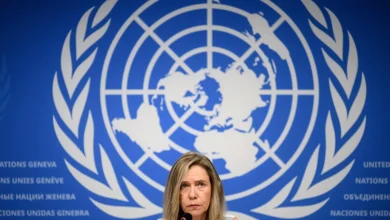Canadian snowbirds say political tensions with the U.S. are changing their migration patterns

The sunny weather. The beach views. The relaxed lifestyle. These are the things that drew Jo-Ann Rowe to South Florida.
When the Toronto woman retired 10 years ago, she started spending her winters in Fort Lauderdale, renting a condo for three months. Being in the United States was familiar for Rowe, whose grandmother was American, and because she’d travelled throughout the U.S. as a young athlete.
“It was just gorgeous,” Rowe said of her home away from home, which also became a place of comfort and refuge when her partner died. Friends and connections she had made there eased the pain of her loss.
But things started to change after Donald Trump was re-elected as U.S. president in November 2024. Not long after, Trump made comments about Canada becoming the 51st state, and Rowe says her American friends brushed it off as a joke.
“I thought, ‘This is not a joke. This is not funny at all,’ ” she said, adding the remarks about Canada made her feel unappreciated.
“I thought, basically, they weren’t in tune with what was happening, and it bothered me that they didn’t really pay attention to Canada and what we offered and how much we supported their economy and vice versa. They took us for granted,” she said.
Jo-Ann Rowe and her dog enjoy a dinner beside the water in Florida. The Toronto snowbird decided against going to the Sunshine State this winter after U.S. President Donald Trump’s remarks about Canada becoming the 51st state. (Submitted by Jo Rowe)
As a patriotic wave swept Canada amid tariff tensions — with consumers buying Canadian — Rowe started to re-think her vacation plans.
While she acknowledges the low Canadian dollar, Rowe says it was the friction between the two countries that pushed her over the edge. Within the first few months of 2025, her mind was made up.
“I thought, ‘I’m getting out of here,’ ” Rowe said. “As a Canadian, my little thing to do was change my winter vacation as a snowbird.”
She says she’ll spend this winter in Puerto Vallarta, Mexico, and has no plans to go back to the U.S. until there’s a change in administration.
Snowbird season
November is traditionally the time of year when Canadian snowbirds begin their migration south to escape cold and snowy winters. But this year, fewer Canadians are expected to make that trek to states such as Florida, Arizona and California, choosing patriotism over tradition.
A recent U.S. travel report forecasts a 3.2 per cent decline in international tourism in 2025, much of it attributed to the loss of Canadian visitors.
According to a survey of more than 4,000 Canadian snowbirds conducted in late October by the company Snowbird Advisor, which runs a resource website for winter travellers, 70 per cent of respondents who are part of the organization’s community said they plan to spend the winter in the U.S. — a nearly 15 per cent drop from the year before.
Jacqueline and Carey Ellingson plan to winter in Mexico this year rather than in the United States, a change they attribute to the escalating political climate in the U.S. (Kory Siegers/CBC)
Jacqueline and Carey Ellingson are from Barrhead County, Alta., about 120 kilometres northwest of Edmonton. When they retired in 2015, they started travelling to the United States and later bought a home in an RV park in Yuma, Ariz.
They sold that Arizona home in December 2024, citing rising costs in the park, the exchange rate and their desire for a change of scenery. The couple intended to winter somewhere else in the U.S. this year, then things took a turn.
“Once the political climate in the U.S. escalated, we had no intentions of returning to the U.S.A., despite having so many friends that are asking for us to come back,” said Jacqueline.
The pair now plan to spend two and a half months in Playa del Carmen, Mexico, this winter and say they never expected geopolitical relationships to affect their lives as snowbirds.
Carey says it was American disrespect for Canada as a sovereign country that compelled the couple to avoid the U.S, adding they felt Canadians had always had America’s back when it came to conflicts, trade and economics.
“We just didn’t get that warm, fuzzy feeling anymore that it was being reciprocated. So that would have been the final straw for making that decision.”
He said they would go back to the U.S. “in a heartbeat” once the political administration changes.
WATCH | How Canadian travel habits are changing:
Number of Canadians travelling to U.S. declines for 9th month in a row
Travel specialist Angela Weir discusses the changing travel habits of Canadians following data showing a decline of trips to the United States amid a trade war.
To check the pulse of the snowbird situation, CBC News travelled to Florida, where Canadians made up 27 per cent of international visitors in 2024, according to Visit Florida, the state tourism agency.
Conversations with Canadians, politicians, realtors and business owners reveal concerns over the disappearance of Canuck visitors and worries about the typically lucrative snowbird season.
In the first quarter of 2025, visitor growth year-over-year was down close to 17 per cent; it was down 20 per cent in the second quarter, according to statistics gathered by Visit Florida.
That has huge implications in a state where Canadian snowbirds contribute to local economies, sometimes staying for as long as six months.
Josh Levy is mayor and lifelong resident of Hollywood, Fla., a city with a population of approximately 143,000 nestled between Fort Lauderdale and Miami.
Josh Levy, in his third term as mayor of Hollywood, Fla., says he hopes the long-standing friendship between Canada and the U.S. continues despite current political tensions. (Kory Siegers/CBC)
Snowbirds have been a part of life in Florida for decades, but Levy notes that the rhetoric on trade has hurt Canadians.
He says countries should always be able to discuss their economic relationship and settle differences, but “the way in which it has been discussed openly has led to offence.”
The three-term mayor stresses that Florida remains a welcoming place for Canadian snowbirds and underlined their economic impact on the community and the state.
“We see our Canadian visitors at our grocery stores and in restaurants and just contributing to the local economy,” he said, adding that over half a million jobs in Florida are directly related to the economic presence of Canadian snowbirds.
The mayor is hopeful that the long-standing friendship between Canada and the U.S. will supersede the current political situation.
“We have a great relationship with our Canadian friends. Let’s not let anything get in the way.”
WATCH | Canadians are staying home and that’s costing U.S. tourism:
U.S. tourism faces billions in losses as Canadians stay home
A U.S. Travel Association report forecasts that international tourism spending will decline by $5.7 billion in 2025, compared with the previous year. The association largely attributes the loss to a decline in Canadian visitors since U.S. President Donald Trump returned to office.
Decreased Canadian presence
Dairy Belle in Dania Beach, Fla., has been a gathering spot for Quebec snowbirds for decades.
In the time that CBC News spent in the restaurant, almost every customer spoke French and identified as either being a snowbird or a Canadian expat in Florida.
Chocolate-dipped soft-serve ice cream, burgers and poutine are mainstays on the longtime restaurant’s menu, where business peaks during the snowbird season.
Co-owner and general manager François Grenier says up to 70 per cent of business from November to April comes from Canadians. His parents hail from Victoriaville, Que., and opened the restaurant in 1998.
François Grenier, the co-owner of the Dairy Belle restaurant in Dania Beach, Fla., says he’s expecting a drop in sales this snowbird season and projects he’ll be hiring fewer people as a result. (Kory Siegers/CBC)
However, since January, Grenier says he’s heard that customers are concerned not only about the exchange rate and the cost of living, but also about Trump.
He’s expecting a drop in sales this snowbird season and projects he’ll be hiring fewer people as a result.
“We’re all concerned about what’s going on right now. They will come but not everybody will come,” Grenier said of the Canadian snowbirds. “We’re aware of that. To what extent, we still don’t know.”
A little further north, The Atlantic Hotel and Spa in Fort Lauderdale has seen a strong Canadian presence since it opened in 2004.
There are several Canadians on the board of directors at the building, which also has condo units.
The director of sales and marketing at the Atlantic Hotel and Spa in Fort Lauderdale, Fla., says rooms that are normally filled by Canadians are now sitting empty. (Kory Siegers/CBC)
Director of sales and marketing Amy Faulkner says there’s been a noticeable difference in business since January, when Trump leaned into tariff threats and comments about Canada becoming the 51st state. Hotel rooms normally filled by Canadians are now sitting empty.
Since the start of the year, Faulkner said occupancy in the 100-room hotel from Canadians has dropped five per cent.
“It breaks my heart,” she said, noting that snowbirds typically stay between three and six months, so any drop in occupancy hurts the hotel’s bottom line.
Amy Faulkner, the sales director at the Atlantic Hotel and Spa, says occupancy in the 100-room hotel from Canadians has dropped five per cent since the start of the year. (Kory Siegers/CBC)
The situation is so dire that Faulkner recently went to Brazil to drum up business to make up for the loss of the Canadian market. Trips to Argentina and Colombia to attract prospective clients may also be on the table.
“We are trying to desperately fill the gap, because that’s how much we need that business and miss that business,” she said.
Real estate snapshot
According to 2025 figures from the Florida Realtors Association, Canadian buyers make up 18 per cent of international buyers in the state, with Canada being the top buyer country.
But realtors in the Sunshine State say activity from Canadian buyers and sellers has also changed in the last year.
Larry Mastropieri, owner of the Mastropieri Group, has worked in real estate in South Florida for 15 years.
He says that in 2023, his company would help at least two Canadians a month buy a home in Florida, but that’s dropped to between zero and one a month this year. On top of that, he said more Canadians who own homes in the U.S. are selling them.
Larry Mastropieri, who’s been a realtor in South Florida for 15 years, says fewer Canadians are buying homes in the state this year. (Kory Siegers/CBC)
He chalks it up to a perfect storm of a slow condo market, high insurance prices and more stringent condo regulations. But Mastropiere also says political rhetoric and tensions have “absolutely” played a role in transactions with Canadians in South Florida.
“Given the political environment, it’s been a topic without question,” he said.
He’s hopeful it will be short-lived.
“The demand hasn’t just gone away,” Mastropiere said. “And as economic situations change, as political environments change, as prices fall, they will enter the market again. This is just the nature of any market.”





